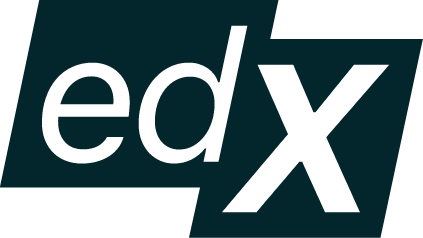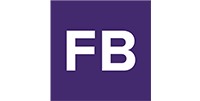Career Pathways
Communications
The way we communicate constantly evolves because every breakthrough changes the way we deliver and consume news, advertising, and content. That means communications professionals need to evolve, too. Tomorrow’s creative leaders will need knowledge and expertise across multiple fields. Learning communications skills prepares you to think critically while identifying and analyzing opportunities; envisioning, proposing, and implementing solutions; and adapting to change and uncertainty.

Options for specialization
There are several expansive sub industries within the field that are ever-evolving.
Opportunities for advancement
Projected growth in media and communications is 6% from 2021 to 2031.
Desirable payscale
Communications professionals make higher than the average median annual wage.

Ruben Ruvalcaba, B2B Associate Marketing Manager
To know where your skill set fits within the industry, sometimes all it takes is a little research. Listen as Ruben Ruvalcaba, B2B Associate Marketing Manager at Zoetis, shares his experiences applying course knowledge to the job search:
It was heavy, it was heavy, it was packed with a lot of information. But I’ve learned a lot for sure. The things that I really loved the most about [it] was the strategy behind all the paid media and SEO. That creative, that is [strategic] thinking, other research, the data analysis, I really loved that part, and, well and then I started to look for jobs related to this, to professionalize this course a little bit further.
Discover your career opportunities
Acquiring basic communications skills opens up a wide range of career opportunities around the world.
| Entry level | Mid level | Senior level | Entrepreneurial |
|
| Advertising Manager | ||||
| Brand Strategist | ||||
| Business Analyst | ||||
| Chief Marketing Officer | ||||
| Communications Coordinator | ||||
| Communications Director | ||||
| Consultant | ||||
| Marketing Manager | ||||
| Media Planner | ||||
| PR or Marketing Firm Business Owner | ||||
| Public Relations Specialist | ||||
| Senior Communications Lead | ||||
| Social Media Coordinator | ||||
| Social Media Manager | ||||
| Technical Writer | ||||
| VP of Marketing or Advertising |
Learn about topics in communications
Register for a course on edX to learn about a variety of topics within the communications industry.
How can I acquire communications skills and turn them into a career?
If you’re interested in pursuing your own career in the communications industry, we recommend taking these steps:
Research is key in any career, and a career in communications is certainly no exception. Take advantage of all the information out there, whether through surfing the internet for job titles, listening to industry-specific podcasts, or getting connected to professionals in the areas or positions that interest you.
One key part of the research phase is networking. This simple step is often overlooked and undervalued but can significantly impact your career trajectory. To clarify your career goals and aspirations, you should talk with professionals about what working in communications looks like.
You open a door of opportunity in your own career by reaching out to professionals in your targeted fields, positions, and companies. Connecting with communications professionals who could help you gain hard-to-find intel about the industry is invaluable.
Check out our Networking guide and Networking outreach samples for help getting started.
To supplement your understanding of what others are doing professionally, make sure to determine your own goals and aspirations. Ask yourself if the communications industry itself is what interests you or if its the communications functions within another industry. The possibilities are endless!
Communication skills are valuable across the vast majority of professional industries. Of course, specific skills within the communications industry will increase the value you can add to a job and increase the pool of job postings you qualify for.
Use the list below to determine which popular skills match your interests.
Technical writing — Journalism, brand management, content development.
Social media — Online marketing, brand management, content strategy, data analysis, forecasting.
Public relations — Client relationship management, brand content strategy and development, digital marketing, project management.
Marketing — Advertising, market analysis, content strategy and development, digital marketing, project management.
There are a variety of mediums through which you can learn coding skills. Consider which route best fits your needs and learning-style. Here are a few options to consider:
There are a variety of mediums through which you can learn communications skills. Consider which route best fits your needs and learning style. Here are a few options to consider:
Self-education — If you want to learn asynchronously, informally, or casually, self-education is a great place to start. Many approaches to this learning style support various career goals, budgets, learning styles, and time commitments. Here are some ways to self-educate in communications:
- Informal opportunities: Gain a greater understanding of the industry by reading. Explore books and articles to expand your communications knowledge and learn what’s happened or is happening in the field. Not a reader? Plenty of videos, podcasts, and other forms of multimedia can teach you a thing or two about careers related to communications.
- Online Courses: If you prefer a more structured or socialized learning experience, online courses might be a good option. edX.org offers several instructor-led and self-paced communications courses that may be of interest.
- Professional certifications: When you want a less casual learning experience but don’t have needs that warrant a boot camp or degree, professional certifications may be the best fit for you. Professional certifications are a great addition to your resume and build your skills for roles in communications. edX.org offers many certificate programs that may interest you.
Communications degree — Pursuing a degree in communications means diving deep into the fascinating world of media, marketing, and business! It’s an excellent choice if you want to gain a comprehensive understanding of writing, marketing, multimedia, and storytelling that have contributed to shaping the way we communicate today.
Employers hiring for a communications role may require a portfolio of projects, such as personal or professional projects or writing samples. You’ll want to build a competitive online portfolio highlighting your skills and unique value.
Once you begin working in the communications industry, make sure to celebrate your success. The career journey is full of ups and downs, and each victory deserves acknowledgment.
With that said, your journey doesn’t end here — it’s only just beginning. Give yourself grace and understand that careers are not linear. Here are some of the ways you can keep growing within the communications industry:
Continued learning — Always reference our course catalog on edX.org for continued learning opportunities. Now that you’ve secured a career in communications, it never hurts to brush up on your skills, expand your knowledge, or discover other subjects that could apply to your work, interests, or something in between.
Promotions — Career advancement in communications can be varied, just like the industry. Depending on which type of communications track you work in, you may become a public relations director, a business strategist, a people manager, or even start your own marketing firm.
Pivots — Make sure to regularly check in with yourself and your satisfaction with daily tasks. If you are dissatisfied in your current role, take stock of what you like and dislike about it, keep your eyes out for company-sponsored growth opportunities, and pursue career pivots that optimize your background, skill set, and interests.
What are my next steps?
Start learning now
Register for a course on edX to learn about a variety of topics within the communications industry.
Watch a session
Watch a relevant session on our Events Page to learn more about the industry and other professional’s experiences within it.
Impact of data science and machine learning in the social media space
Join this session to explore the exciting world of social media data! Discover how information generated on social media is used for various data science applications, from content creation to marketing campaigns. Learn how machine learning and deep learning are applied to social media data to create: But beware, as social media is so prevalent […]

Beyond the job description: Ways to achieve workplace success
View this webinar to learn how to go beyond a job description and discover ways to start or advance your career. Our speaker, Phil Kasiecki, is a Senior Software Engineer II at Raytheon Technologies with over 20 years of experience in the technology industry. His diverse background includes software development tools, embedded systems, device drivers, […]

Interview with a tech recruiter: Setting yourself up for success in the job search
Looking for a new job in the tech industry can be challenging, but staying positive and focusing on your goals is essential. Maintaining a proactive attitude and taking steps to improve your skills and network will help you confidently navigate the job market. Join us for an insightful interview with Brent Hamilton, Lead IT Recruiter […]

















